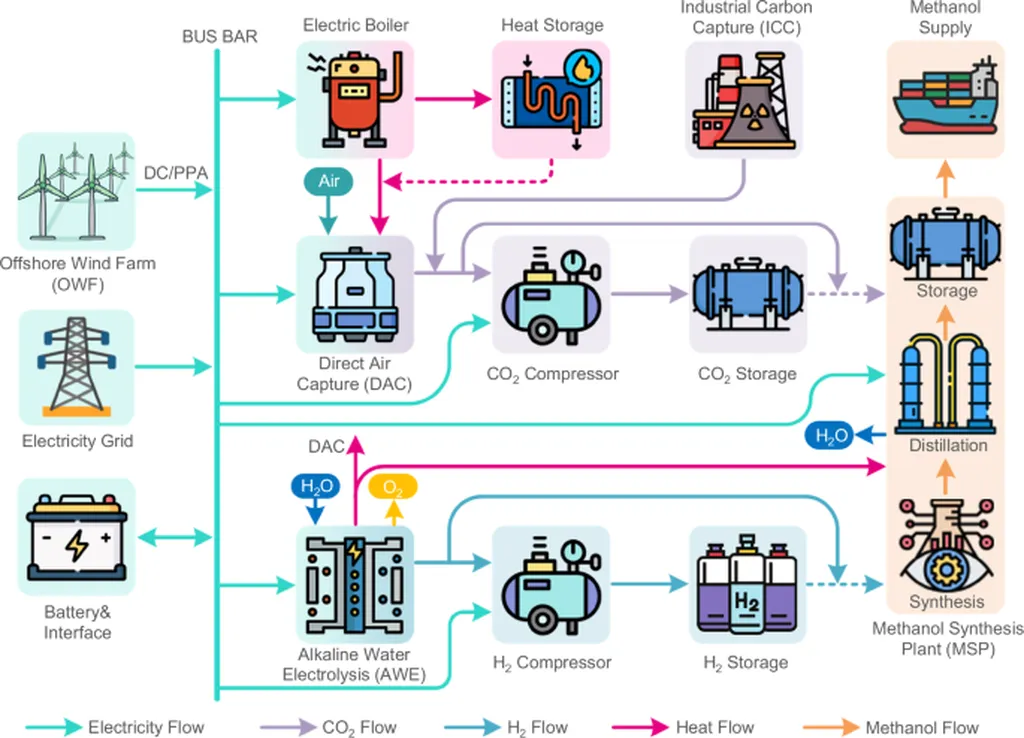In a significant stride towards decarbonizing maritime transport, researchers have demonstrated the potential of offshore wind-powered green methanol to become a cost-competitive and sustainable fuel alternative within the European Union (EU). The study, published in the journal *Nature Communications*, was led by Yunfei Du from the Institute for Ocean Engineering at Shenzhen International Graduate School (SIGS), Tsinghua University.
The research explores the technical feasibility and economic viability of producing green methanol using offshore wind energy, a process that could play a pivotal role in meeting stringent emission reduction goals. Green methanol, a low-carbon fuel, is produced by combining hydrogen—derived from water through electrolysis using renewable energy—with captured carbon dioxide. This method not only reduces greenhouse gas emissions but also leverages mature, easily replicable technology.
“We analyzed various system configurations, incorporating diverse electricity sources and carbon capture technologies, to optimize the production process,” said Du. “Our findings indicate that green methanol can fully comply with EU regulations for renewable fuels and has the potential to become cost-competitive with conventional fuels after 2030.”
The study assessed the levelized cost of methanol (LCOM) and projected future trends based on technological advancements and regulatory frameworks. The researchers considered the impact of the EU Emissions Trading System and the FuelEU Maritime Regulation, which impose costs on greenhouse gas emissions from conventional fuels. These factors are crucial in evaluating the economic competitiveness of green methanol.
“By 2035, green methanol is expected to be uniformly less expensive than conventional fuels,” Du added. “This shift could significantly influence the energy sector, particularly maritime transport, which is under pressure to reduce its carbon footprint.”
The research offers a series of technical and policy recommendations for different stakeholders, aiming to accelerate the adoption of green methanol. For instance, the study suggests that policymakers should continue to strengthen regulations that incentivize the use of renewable fuels. Additionally, it recommends that industry players invest in technological advancements to further reduce production costs.
The implications of this research are far-reaching. As the maritime industry seeks to decarbonize, the availability of cost-competitive green methanol could drive a significant shift away from fossil fuels. This transition would not only help meet climate goals but also create new economic opportunities in the renewable energy sector.
“Our findings highlight the importance of integrating renewable energy sources with innovative technologies to produce sustainable fuels,” Du noted. “This approach can pave the way for a greener future in maritime transport and beyond.”
The study, published in *Nature Communications*, provides a robust framework for understanding the potential of offshore wind-powered green methanol. As the energy sector continues to evolve, this research could shape future developments in renewable fuel production and contribute to global efforts to combat climate change.

